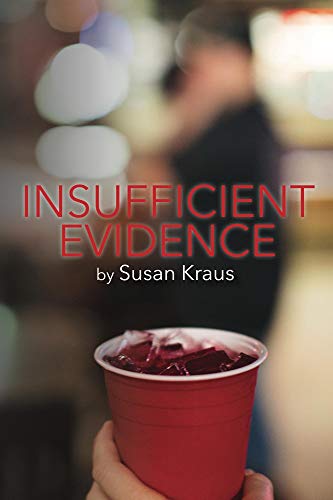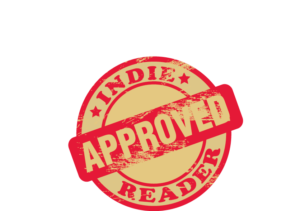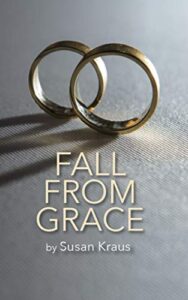Insufficient Evidence received a 4+ star review, making it an IndieReader Approved title.
Following find an interview with author Susan Kraus.
What is the name of the book and when was it published?
The title is Insufficient Evidence and it was released November of ’18. It was just a working title, but, during my research, one of the documents I got hold of was the letter sent to victims by the IOA (Institutional Opportunity and Access) of the university after their ‘investigation’ is concluded. It had those very words: “There is insufficient evidence….”
What’s the book’s first line?
“And then what happened?” I was stuck, surrounded by drafts and notes, feeling overwhelmed, when my character spoke up. It was a tad surreal as I actually heard a voice. Chapter One just flooded out after she asked that question. It is a simple, core question of any therapy process in establishing narrative. And both therapy and fiction are all about creating and/or re-creating a life narrative.
What’s the book about? Give us the “pitch”.
“Insufficient Evidence” is about campus sexual assault in hook-up culture, told through the eyes and experiences of young women, a therapist, perpetrators, friends … and a core cast of characters as this is the 3rd novel in a series. But it is more about relationships, and finding self through struggle.
What inspired you to write the book? A particular person? An event?
First, I’m a therapist, so I’d have to say that my clients have inspired all the novels. But, more specifically, I worked as a volunteer with the Austin Rape Crisis Center decades ago. I’ve always worked with young women coping with sexual assault, but also many older women who are coming to terms with how being sexually assaulted then impacted so many of their life choices.
What’s the main reason someone should really read this book?
It’s a damn good read! I thought of my reader demographic as women 45+, but am hearing from women in university. Some readers who experienced sexual assault report that the conclusion –which I worried would be too intense or visceral– is cathartic. Plus there is lot of research-based content that flows through the narrative. It’s more than the story.
What’s the most distinctive thing about the main character?
My protagonist, Grace McDonald, is a therapist and mediator in a university town. I’m a therapist and mediator (“write what you know”) but Grace, is less constrained by rules. Grace goes a little rogue when she feels that the end will justify the means.
If they made your book into a movie, who would you like to see play the main character(s)?
This seems so grandiose. Like it takes chutzpah to even answer. I could see so many fine, accomplished women as “Grace.” Each would be a different Grace, but that’s OK as there as many visuals of Grace as there are readers. Every reader creates her own. Like I just saw the film “Little Women” and had to adapt the girls who existed in my head for decades with the people on the screen.
When did you first decide to become an author?
Is that what I am? Seriously? When I was young, girl ‘dreams’ were more constricted. I did not have the self-awareness or courage of Jo (“Little Women”) so nothing much happened until I was about 50. I still have trouble saying the ‘a’ word.
Is this the first book you’ve written?
No, the 4th. The first, published in ’04, was the first travel guidebook ever published on the cities of an athletic conference: Game Day Guide: Towns of the Big 12. It was a blast to research and write. Then came three novels: Fall From Grace (it was a stand-alone novel until the characters started to haunt me); and All God’s Children (which centers on a custody battle over a child in the gay bashing, funeral picketing, misogynistic Westboro Baptist Church.)
What do you do for work when you’re not writing?
I still have a private practice as a therapist and mediator. And, when not writing fiction, I write travel articles. I love to travel! This fall I was in Chihuahua, Mexico and El Paso, which is really engaging city. In December, went to northern Japan for the first time and did some tourist stuff but also visited the sites of the tsunami of 2011.
How much time do you generally spend on your writing?
When working on a novel, I spend a year or more in the research phase. My books are fiction, but fiction built on a foundation of fact. I strive for accuracy and detest the alt-fact movement. During that time, I also keep notebooks of ideas, scenes, characters, etc. When actually in the ‘writing’ phase, which is at least a year, I try to get away for weeks at a time and drown in words. Like stay in PJ’s and work until my eyes are red and blurring. It is then that the characters start to direct the process. In-between writing ‘bursts,’ I’m home, seeing therapy clients, mediating divorces for the local courts, groceries, cleaning my messy house, running errands— the stuff all women do.
What’s the best and the hardest part of being an indie?
The hardest part of ‘Indie’ is not having a BIG, reputable publishing house to take over the marketing. I love to write but I suck at marketing. The best part of ‘Indie’ is the freedom to choose. My books are “locally sourced fiction”—the graphic artist, cover photographer, web designer, editor and publisher are all very cool, competent , professional women, and we all live within a 40 mile radius.
What’s a great piece of advice that you can share with fellow indie authors?
It is never too late to make a dream a reality. (But it is damn hard work.)
Would you go traditional if a publisher came calling? If so, why?
Depends on the publisher and the compromises required. I’d want to have a good team because otherwise this work gets lonely. But, really, bring it on!!! I’d love to just write, let someone else worry about the logistics, and then go around speaking.
Is there something in particular that motivates you (fame? fortune?)
Readers!!!! Sure, a little ‘fortune’ would be nice (could underwrite more traveling) but what makes me happy is knowing that my books are being read, beliefs are challenged and empathy is experienced when readers least expect it.
Which writer, living or dead, do you most admire?
This would be a very, very long list. But for a ‘curl-up-on-the-couch’ read, I enjoy reading Jodi Picoult. She is genuine, prolific, balances contemporary issues with characters worth caring about, and we write for the same demographic. I’d like to have coffee with Jodi Picoult. I would hope that, after reading one of my novels, she’d like to have coffee with me.
Find me at:
Facebook: writersusankraus
Instagram: susankraus1
Pinterest: [email protected]


